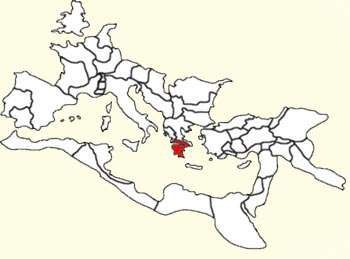Rome’s interest in this part of the Mediterranean Sea began with the Macedonian wars. Despite the bad beginnings, the Second Macedonian War in the years 200-197 BCE and the great victory at Cynoscephalae came with the sentence of Ancient Hellas.
After these disasters, the Greeks led an autonomous life, under an agreement with the victor at Cynoscephalae, Titus Flaminus. The fate of the sovereign Achaia was finally destroyed by the war with Corinth in 149 – 146 BCE. The defeat of the Hellenes was associated with the banning of the Achaean League and the loss of sovereignty, although some cities retained autonomy, such as Athens. So, from 146 BCE all of Greece, with the exception of Epirus, Thessaly, and Macedonia, was known as Achaea. Later, Achaea was incorporated into Macedonia. Octavian Augustus created the province of Achaea in the 22 BCE with its capital city of Corinth.
Among the few riches in this mountainous land were important resources of copper, iron, silver, lead, and marble. In terms of agriculture, these lands were rich in olive oil, wine and honey.
Achaea also played a great role in the art and culture of Rome, which imitated her heritage.







